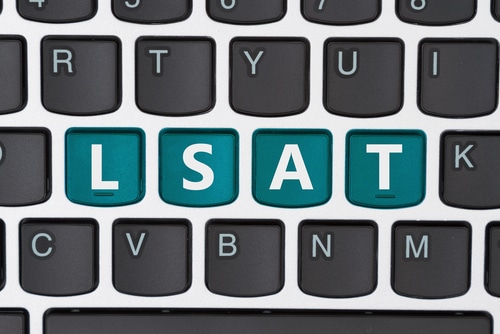
The LSAT is hard enough without you doing something dumb on test day. Take me for example … I stayed up late the night before I took the exam, and then slept through my alarm. I had to rush my breakfast, which ended up being a donut while I was driving, and had to park my car and run across campus. I made it by about 3 minutes. It was awful, and my test score reflected how I felt that morning.
Don’t be me on my first LSAT sitting. You’ll regret it.
Stick to these basic tips and you’ll be much better off than I was.
Tip #1: Get at least 8 hours of sleep.
I can’t even begin to tell you how important 8 hours of sleep will be. Sleep is your brain’s way of recharging from the activities of the prior day. You need 8 to 9 hours of sleep, consistently, in order for that to happen.
Tip #2: Don’t try and study on the day of the exam.
Your score isn’t going to improve by studying anything on the day of the exam. If you study that morning, all you’re going to do is give that little scared voice in the back of your head more confidence to tell you how bad you’re going to perform.
You’ve already put it a bunch of hours. You’ve done enough up to this point. Studying more will have absolutely zero effect on the outcome of your test score.
Tip #3: Eat some good food for breakfast.
Don’t eat a donut. Don’t eat multiple donuts. If you eat a bunch of sugar before the exam, your brain is going to go about 500 miles per hour for the first half hour of the exam. Then, once the 45 minute mark hits, your brain will literally stop working.
To curb this, eat brain foods. That would be foods that are high in protein, like nuts, eggs, yogurt, and cottage cheese. When you eat protein, your body gets a shot of amino acids, which are what those little neurotransmitters in your brain use to communicate with each other. Eating a bunch of carbs, on the other hand — while they do give your brain some amino acids to feed on — will cause your brain to release tryptophan. That’s the stuff in turkey that makes you take a nap after you eat Thanksgiving dinner at 3 in the afternoon.
Tip #4: Give yourself enough time to take a 20 minute walk.
Exercise gets the brain going and increases your ability to memorize stuff. However, you don’t want to exercise the way I did in the story I told at the beginning. You see, when I was running, I was stressed out because I didn’t want to be late.
While I was in that stressed out state of mind, my brain was busy releasing cortisol, or the stress hormone. That’s bad. While it increased agility and stamina short term, it decreases functionality of other parts of the brain. Specifically, it hurts the parts of your brain you need the most when you’re taking the exam.
But, if you exercise, and listen to something relaxing, studies show that brain activity in the good parts of your brain increase. In other words, doing something as simple as walking for 20 minutes will stimulate your brain to the point that your recall and memory will be firing on all cylinders. If that’s not great, I don’t know what is.





